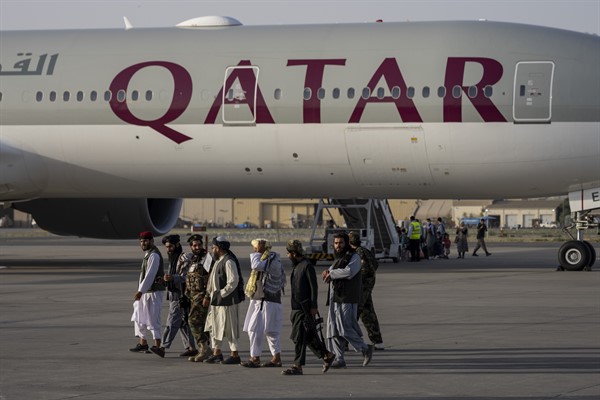With its rich natural gas reserves and strategic location, the Gulf monarchy of Qatar has long played an important role in regional and global diplomacy that belies its small size. It has mediated or facilitated a number of sensitive negotiations, including the talks that led to the peace agreement the United States signed in February 2020 with the Taliban. Since then, and even after the Taliban overthrew the internationally backed government in Kabul this summer, officials in Doha have continued to exercise influence in Afghanistan.
Qatar’s diplomatic efforts have not always been smooth sailing, however. For more than three years, it had to weather a blockade that was imposed on the country by a group of countries led by neighboring Saudi Arabia and the UAE, fellow members of the Gulf Cooperation Council. That embargo was only lifted in January of this year.
Today on Trend Lines, Annelle Sheline, a research fellow in the Middle East program at the Quincy Institute for Responsible Statecraft, joins WPR’s Elliot Waldman to discuss the unique role that Qatar plays in the Middle East and in the broader Islamic world, as well as the complicated dynamics in the region that it must navigate as it does so.
If you would like to request a full transcript of the episode, please send an email to podcast@worldpoliticsreview.com.
Listen:
Download: MP3
Relevant Articles on WPR:
Long-Delayed Elections Will Be a Key Test for Qatar—and the Gulf
After the Qatar Boycott, Can the GCC Come Together?
As Qatar Readies for the 2022 World Cup, Migrant Workers Continue to Die
Saudi Arabia’s Economic Ambitions Could Fuel Gulf Rivalries
Trend Lines is edited by Peter Dörrie, a freelance journalist and analyst focusing on security and resource politics in Africa. You can follow him on Twitter at @peterdoerrie.
To send feedback or questions, email us at podcast@worldpoliticsreview.com.




